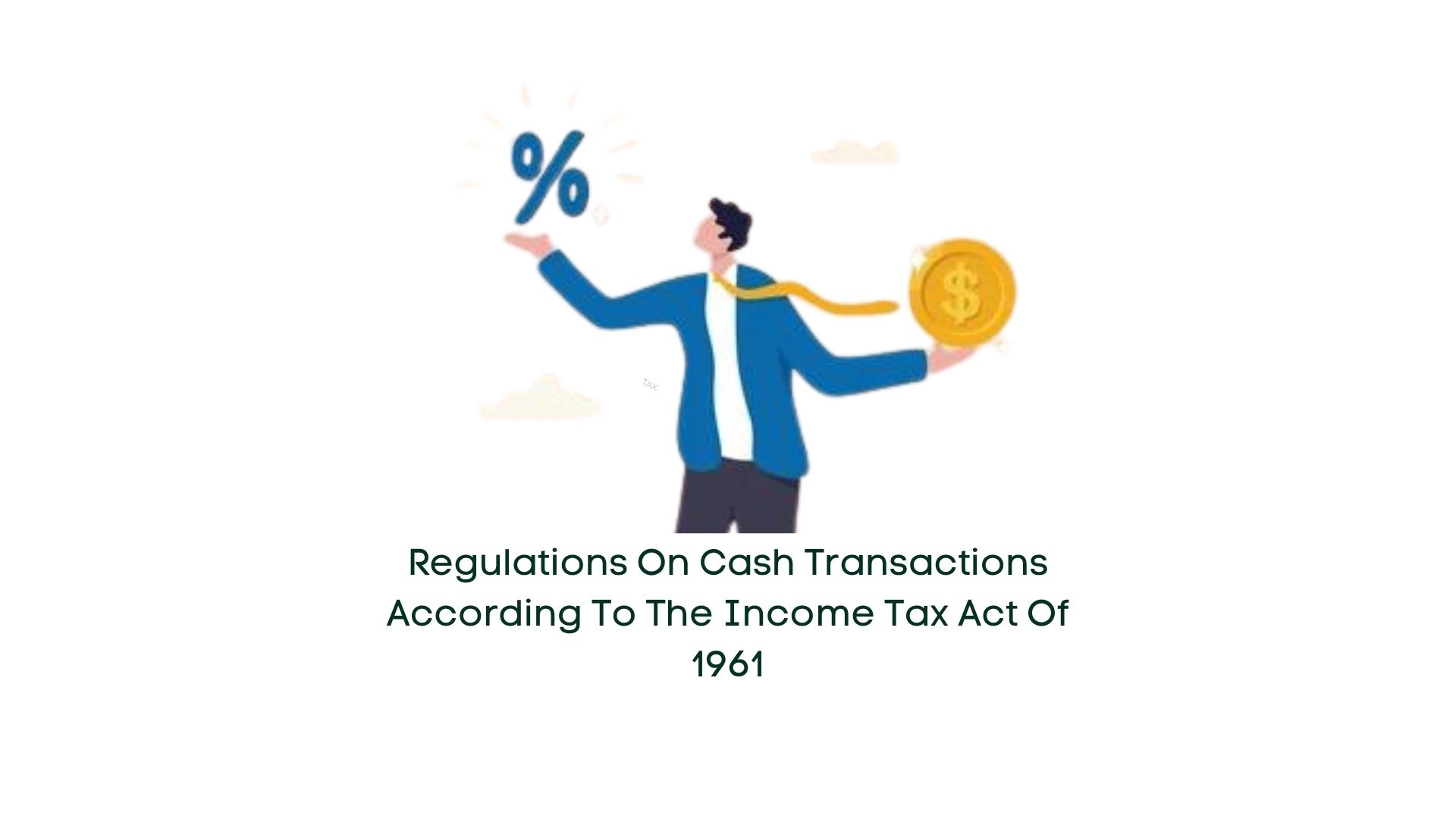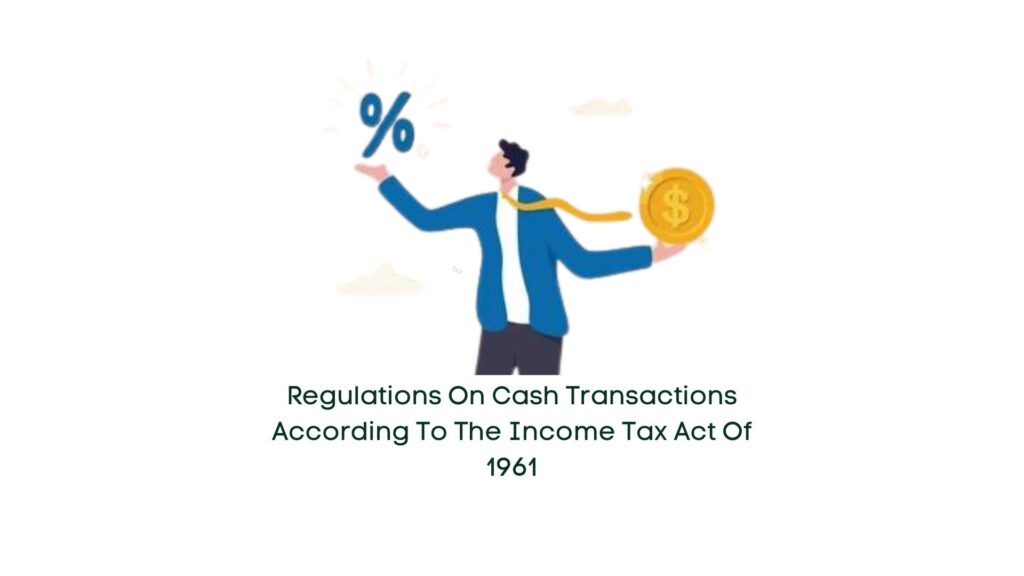
28 Feb Regulations on Cash Transactions According to the Income Tax Act of 1961

Within the dynamics of the Indian economy, cash transactions historically wielded significant influence, often contributing to the generation of undisclosed income. In response, the government has embarked on several initiatives to mitigate cash transactions and promote digital payment mechanisms. This discourse delves into the constraints imposed on cash transactions under the purview of the Income Tax Act, shedding light on the prescribed limits and penalties applicable for exceeding stipulated thresholds.
Limitations on Cash Transactions – Section 269ST
Enacted as part of the Finance Act 2017, Section 269ST was introduced to combat the proliferation of unaccounted wealth. This provision restricts cash transactions to Rs. 2 Lakhs per day. Specifically, it prohibits the receipt of Rs. 2 Lakhs or more:
- Cumulatively from an individual within a day,
- For a single transaction, or
- For transactions associated with a singular event or occasion from an individual.
However, it’s noteworthy that the Central Board of Direct Taxes (CBDT) has exempted certain transactions from this cash withdrawal limit, including withdrawals from Banks and Post offices.
Hence, Section 269ST does not apply to:
- Cash received via an Account Payee Cheque, Account Payee Bank draft, or electronic clearing system (ECS) through a bank account.
- Receipts by the Government, banking companies, post office savings banks, or co-operative banks.
- Transactions falling under the purview of section 269SS.
- Any other individuals or categories specified by the Central Government through official notification in the Gazette.
Withdrawal Procedures
From Post Offices:
Post offices under the jurisdiction of India Post facilitate cash withdrawals from Post Office savings accounts, including ATM services. The withdrawal limit stands at Rs. 25,000 per day, with individual transactions capped at Rs. 10,000. Additionally, post offices offer five free transactions per month, encompassing both financial and non-financial activities. Subsequent transactions incur a fee of Rs. 20 plus GST.
From Banks:
Banks allow withdrawals from both savings and current accounts through various channels such as chequebooks, withdrawal slips, or ATMs employing debit cards. However, the cash withdrawal limit varies across banks and card types, ranging from Rs. 10,000 to Rs. 50,000 per day.
Income Tax Implications
Several sections of the Income Tax Act govern cash transaction limits, including:
- Section 40A(3) and Section 43 pertaining to cash payments.
- Sections 269SS and 269ST concerning cash receipts.
- Section 269T regulating loan or deposit repayments.
Penalties and Compliance
For instance, Section 40A(3) mandates that expenditures exceeding Rs. 10,000 made in cash are disallowed under the Income Tax Act. Likewise, failure to comply with Section 269SS regarding loans or deposits above Rs. 20,000 in cash attracts penalties equivalent to the amount involved.
In conclusion, understanding the regulatory framework surrounding cash transactions within the Income Tax Act is crucial for taxpayers to ensure compliance and avoid penalties associated with breaches of prescribed limits and procedures.


No Comments